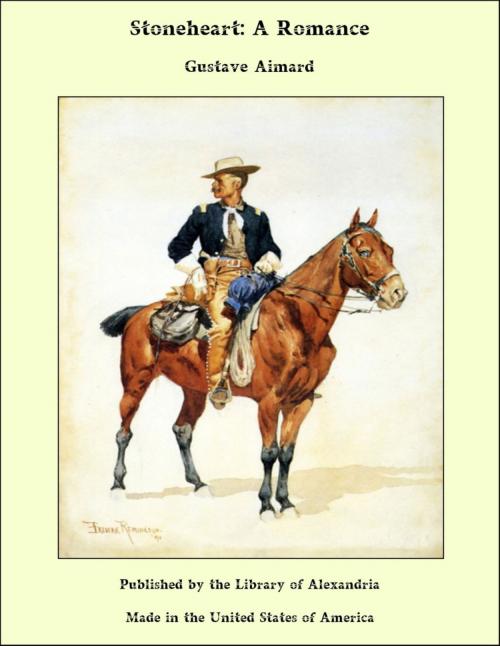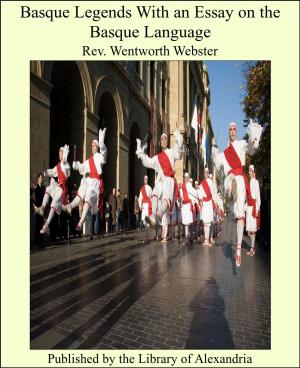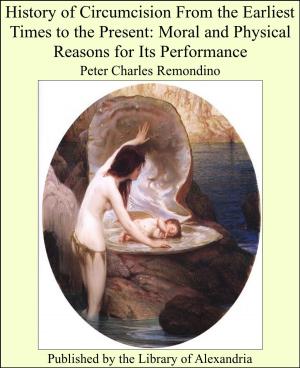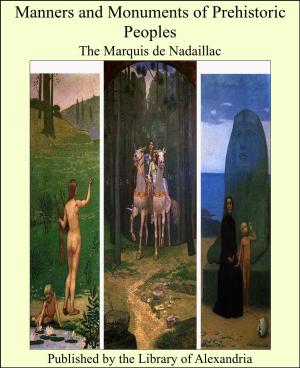| Author: | Gustave Aimard | ISBN: | 9781465602688 |
| Publisher: | Library of Alexandria | Publication: | March 8, 2015 |
| Imprint: | Language: | English |
| Author: | Gustave Aimard |
| ISBN: | 9781465602688 |
| Publisher: | Library of Alexandria |
| Publication: | March 8, 2015 |
| Imprint: | |
| Language: | English |
Sympathy is a feeling admitting neither analyzation nor discussion. It masters us, whether we will or no. Persons we meet unconsciously attract or repel us at first sight. And why? It is a question impossible to answer, but the fact is indubitable. An irresistible magnetic influence draws us towards people whom, if we listened to the promptings of self-interest, we ought to shun; while, on the other hand, the same influence compels us to avoid others, in whom this very interest should induce us to confide. And it is an extraordinary fact, well worthy of remark, that this intuition, acting in opposition to our reasoning powers, seldom if ever misleads us. Sooner or later we are forced to acknowledge as right what to the prejudiced eyes of the world appeared erroneous, and find that our sympathy, far from deceiving, has only led us to the truth. The result of this sympathy and antipathy are so palpable, so many persons have experienced the effects of this mysterious influence, that it would be superfluous for us to linger longer over the topic. Don Estevan and Stoneheart had become acquainted under circumstances which might have induced enmity between them, or, at all events, made them indifferent to each other: the reputation of the bee-hunter, and the singular life he led, were ample reasons why the young and straightforward mayor domo of Don Pedro de Luna should feel himself repelled by them; and yet a diametrically opposite effect was produced without the two young men knowing why, and they suddenly felt themselves friends, bound together, not by one of those vapid sentimentalities so common in civilised life in Europe, where the word "friend" means no more than a mere acquaintance, and is one of the titles most easily and constantly profaned, but by the strong, true feeling, admitting neither limit nor reasoning, which shoots up so strongly in a few hours that it engrosses an immense part of the existence of those of whom it has taken possession.
Sympathy is a feeling admitting neither analyzation nor discussion. It masters us, whether we will or no. Persons we meet unconsciously attract or repel us at first sight. And why? It is a question impossible to answer, but the fact is indubitable. An irresistible magnetic influence draws us towards people whom, if we listened to the promptings of self-interest, we ought to shun; while, on the other hand, the same influence compels us to avoid others, in whom this very interest should induce us to confide. And it is an extraordinary fact, well worthy of remark, that this intuition, acting in opposition to our reasoning powers, seldom if ever misleads us. Sooner or later we are forced to acknowledge as right what to the prejudiced eyes of the world appeared erroneous, and find that our sympathy, far from deceiving, has only led us to the truth. The result of this sympathy and antipathy are so palpable, so many persons have experienced the effects of this mysterious influence, that it would be superfluous for us to linger longer over the topic. Don Estevan and Stoneheart had become acquainted under circumstances which might have induced enmity between them, or, at all events, made them indifferent to each other: the reputation of the bee-hunter, and the singular life he led, were ample reasons why the young and straightforward mayor domo of Don Pedro de Luna should feel himself repelled by them; and yet a diametrically opposite effect was produced without the two young men knowing why, and they suddenly felt themselves friends, bound together, not by one of those vapid sentimentalities so common in civilised life in Europe, where the word "friend" means no more than a mere acquaintance, and is one of the titles most easily and constantly profaned, but by the strong, true feeling, admitting neither limit nor reasoning, which shoots up so strongly in a few hours that it engrosses an immense part of the existence of those of whom it has taken possession.















